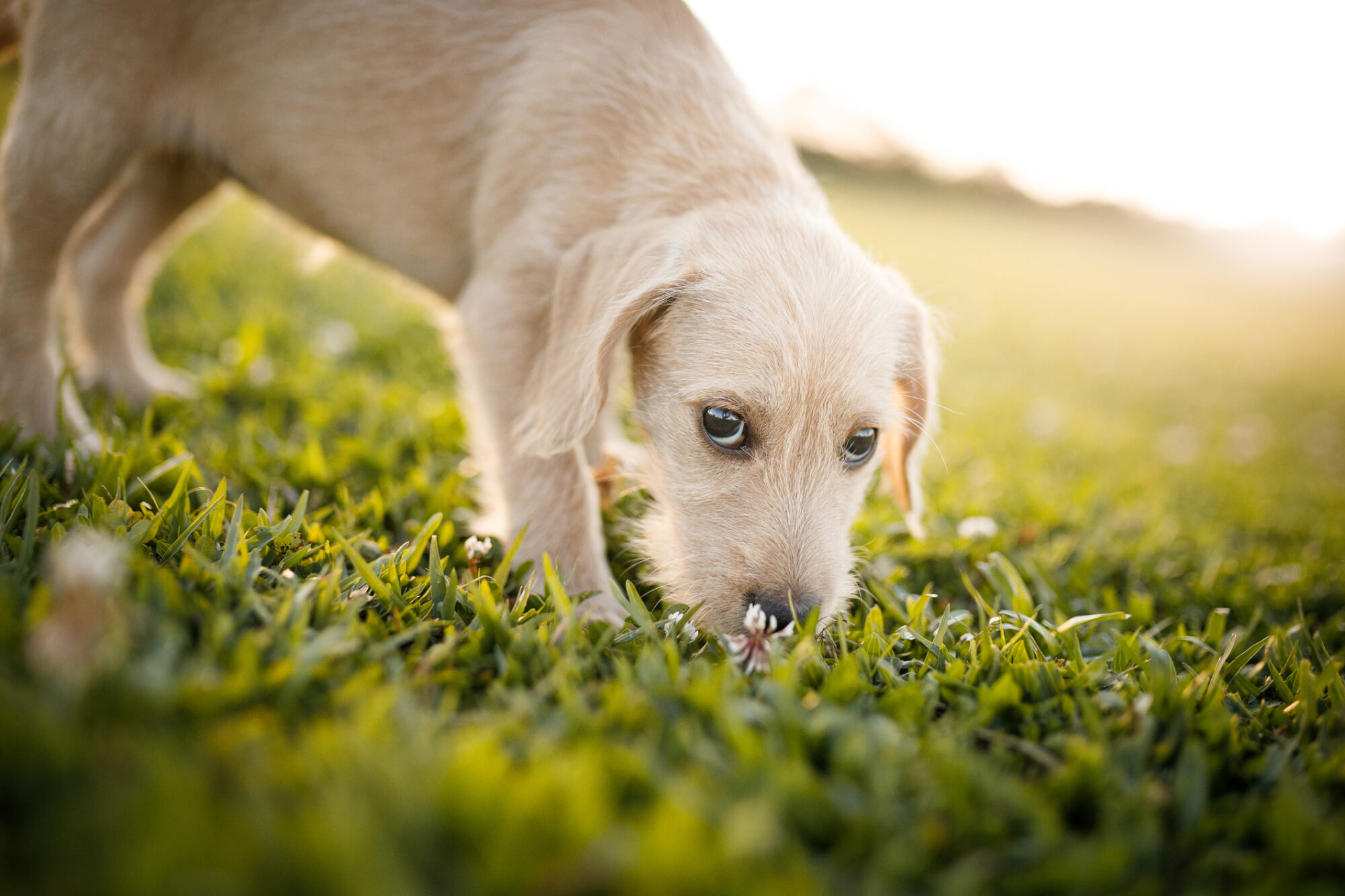Why Does My Dog Eat Poop?

You offer nutritious meals and plenty of snacks, but still: your dog eats poop! Why would they do this, and what does it mean? Keep reading to find out why some dogs eat poo.
You’re Not Alone
First, it may help you to know that if your pup dines on doo, (called coprophagia), the tendency is relatively common. About one in four dogs has done it at least once, and up to one in six dogs make it a regular habit! Some dogs will eat their own stool, some will eat “found” stool from other animals, and some will do both. While we wouldn’t call it “normal” or “harmless,” at least be aware that your veterinary team won’t think negatively of you or your pet if you bring it to our attention.
But Why, Though?
From curiosity to illness, dogs might seek out this icky snack for several reasons.
Loneliness
Dogs who are kept alone for long periods of time may experience feelings of isolation. Lack of contact with other pets or people, especially in spaces that are small and/or lack windows, can lead to any number of behavioral issues. Without the opportunity to exercise or socialize, coprophagia can be one of the only options for mental and physical stimulation.
For pet owners who have no other options than to leave a pet alone or confined for long periods, it might be time to consider placing the dog for adoption, hopefully to a household with the space and bandwidth for an active pooch.
Stress
You may not be surprised to learn that stress and anxiety can lead to unwanted behaviors. Dogs could associate poop eating with attention, even if the attention they receive is negative. Conversely, they may be attempting to avoid negative attention. If a dog is scolded too harshly or otherwise “punished” for when and where they poo, it might create a neverending poop-eating cycle.
If you’re struggling with training or any behavior issues, contact us so that we can assist with developing good behaviors while appropriately discouraging unwanted behaviors.
Pack Mentality
Even for dogs who are properly socialized, being part of a pack might lead them to think of poop as edible. For example, when a puppy’s mother bathes them, they can catch the scent of their own stool on their mother’s breath. This can create an association between eating and stool. And when it comes to sick, weak, or older dogs, the pack might eat their stool to avoid attracting predators.
Illness or Infestation
Parasites, diseases, and certain medications might increase your dog’s appetite. They may also interfere with nutrient absorption. As gross as it may seem, your dog may be attempting to regain calories or nutrients lost via elimination. If their bodies signal that they are lacking key nutrients, dogs can essentially try to revisit their food intake, even if it has already passed through them.
What To Do About the Poo
Unpleasant is an understatement when it comes to the topic of pups eating poo. But if you’re going to talk about it anywhere, talk with us at Sunrise Boulevard Animal Hospital!
While the practice of poo eating has the potential to be relatively harmless (even if thoroughly gross), there are some potential dangers as well. Contact with feces can lead to bacteria spreading, and if your dog brings this into your home, your whole family is at risk. This is also one of the ways that parasites, like roundworms and hookworms, can spread. This is true for dogs who eat their own feces and for those who eat poo from other dogs, rabbits, or other wildlife.
To solve the problem, you first want to find the reason, and that’s where a veterinarian’s help is vital. A doctor who knows your dog’s medical history can see if a new or temporary medication might be increasing your dog’s appetite so they’ll eat anything they can find. They can talk to you about the diet you’re feeding and investigate possible illnesses to see if nutrition issues are to blame. And you can keep the yard picked up, and choose walking paths or parks where other dog owners are conscientious about poo pickup just in case.
If you made it through this whole blog about doo-doo without getting too grossed out, then you should feel comfortable and confident enough to call us at (916) 726-2334 if you have concerns about your dog’s questionable culinary choices. We’re happy to help!
